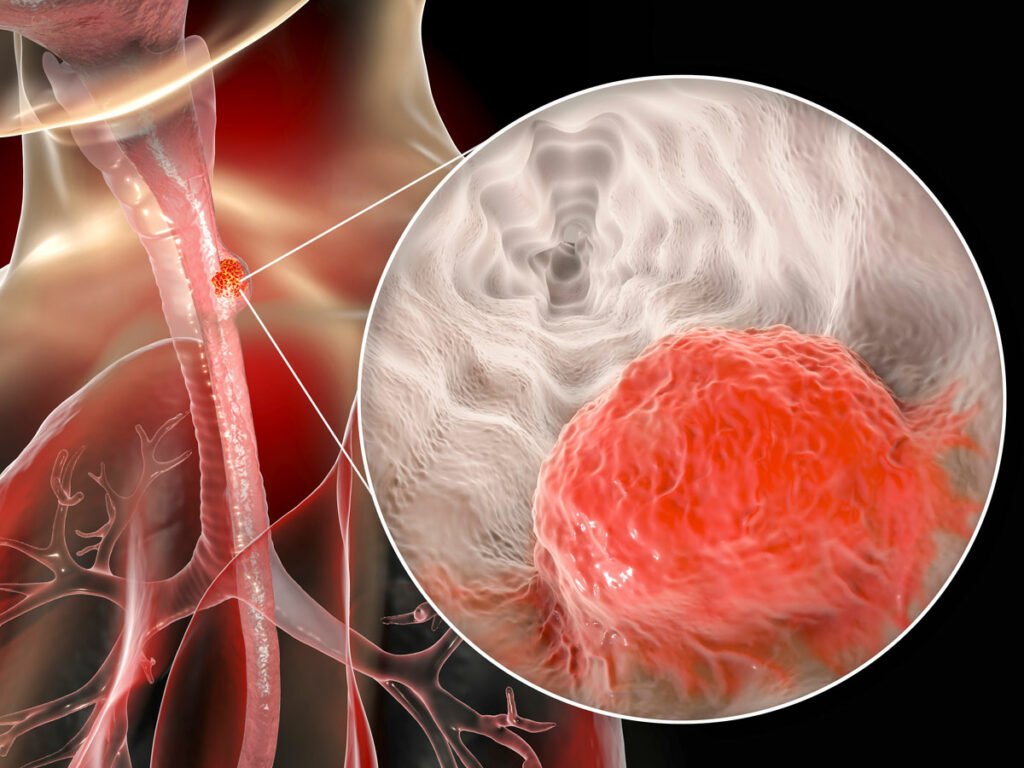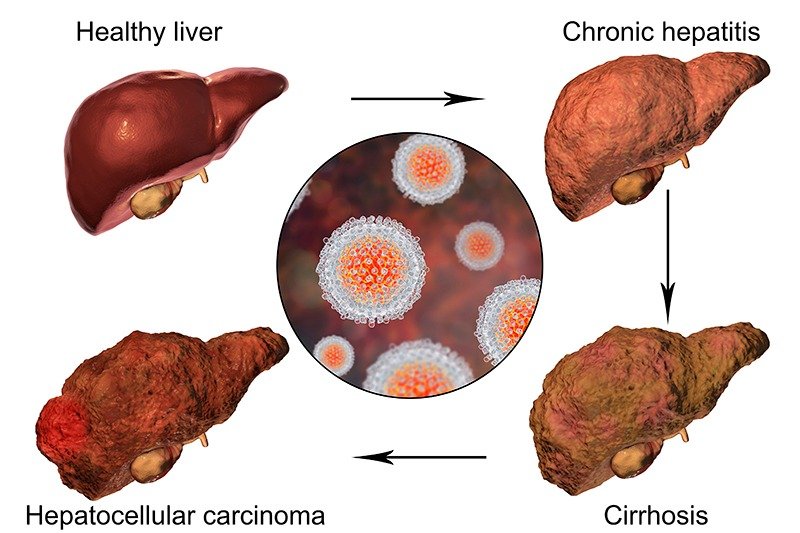Stage 4 cancer, also known as metastatic cancer, occurs when cancer has spread from its original site to distant organs. While a complete cure is rare, significant advancements in treatment—such as immunotherapy, targeted therapy, and holistic approaches like homeopathy—have made it possible for many patients to live longer, manage symptoms effectively, and enjoy a better quality of life. With personalized care and integrative treatment, stage 4 cancer is increasingly being approached as a manageable chronic condition rather than an immediate terminal diagnosis.
What is Stage 4 Cancer?
Stage 4 cancer, also called metastatic cancer, is the final stage in the cancer staging system. It means the cancer has spread from its original site to distant organs or tissues, often through the blood or lymphatic system.
Key Characteristics:
- Extensive Spread: Cancer is no longer localized and may affect multiple organs.
- Organ Dysfunction: The cancer may compromise the function of critical organs such as the liver, lungs, brain, or bones.
Aggressive Nature: Tumors tend to grow rapidly and may resist standard treatments.
How Cancer Staging Works:
Cancer staging generally ranges from Stage 0 (carcinoma in situ) to Stage 4. Stage 4 indicates the greatest tumor burden and is based on:
Tumor size and depth
Lymph node involvement
- Presence of distant metastases (M1)
- Understanding what is stage 4 cancer helps patients and families make informed decisions regarding treatment and palliative care options.

Stage 4 Cancer Symptoms
Recognizing stage 4 cancer symptoms early can help in starting timely interventions, even if the cancer is advanced.
General Symptoms (Common Across Cancer Types):
- Severe fatigue that doesn’t improve with rest
- Rapid weight loss or muscle wasting (cachexia)
- Persistent or unexplained pain
- Loss of appetite
- Chronic infections
- Breathing difficulty or persistent cough
- Swelling in legs or abdomen (edema or ascites)
- Cognitive changes, confusion, or memory loss (especially if brain is affected)
- Bleeding or discharge from body openings
- Each type of cancer may also present unique symptoms when it reaches stage 4, depending on where it spreads.

Stage 4 Cancer in the Most Common Cancers
Let’s examine how stage 4 cancer presents itself in some of the most prevalent cancer types worldwide.
Stage 4 Breast Cancer
Metastasis areas: Bones, liver, lungs, brain
Symptoms: Bone pain, liver enlargement, shortness of breath, vision changes
Treatment options: Hormone therapy, targeted therapy (HER2 inhibitors), chemotherapy, radiation, and homeopathy for side-effect management.
Stage 4 Lung Cancer
Metastasis areas: Brain, bones, liver, adrenal glands
Symptoms: Persistent cough, chest pain, coughing blood, seizures
Treatment options: Immunotherapy (e.g., nivolumab, pembrolizumab), chemotherapy, palliative care, and homeopathic symptom relief.
Stage 4 Prostate Cancer
Metastasis areas: Bones, lymph nodes, bladder
Symptoms: Urinary retention, blood in urine, leg swelling, fatigue
Treatment options: Hormone therapy (androgen deprivation), chemotherapy, bisphosphonates for bone protection, and homeopathy to ease pain and mental distress.
Stage 4 Colorectal Cancer
Metastasis areas: Liver, lungs, peritoneum
Symptoms: Blood in stool, severe bloating, nausea, jaundice
Treatment options: Surgical removal of metastases (if possible), chemotherapy, biologics, and homeopathy for gastrointestinal comfort.
Stage 4 Melanoma
Metastasis areas: Brain, liver, lungs, GI tract
Symptoms: Black or irregular lesions, headaches, fatigue, visual disturbances
Treatment options: Immunotherapy (checkpoint inhibitors like nivolumab or ipilimumab), targeted drugs (for BRAF mutations), and integrative care using homeopathy.

Can Stage 4 Cancer Be Cured?
The most asked question: Can stage 4 cancer be cured? The answer is complex. While a complete cure is rare, many patients live long and fulfilling lives with stable or even regressing tumors thanks to modern treatment options.
Key Points:
- Cure vs. Remission: In stage 4, doctors often aim for long-term remission—a state where the cancer is controlled and symptoms are minimal.
- Chronic Disease Model: Some patients live 5–10+ years with stage 4 cancer as a manageable chronic condition.
- Personalized Therapies: Newer approaches like targeted therapies and immunotherapies are improving survival rates across many cancer types.
Real-Life Examples:
- Some patients with stage 4 melanoma now live for years thanks to immunotherapy.
- In stage 4 colorectal cancer, surgical resection of liver metastases can lead to long-term survival.
- Breast cancer patients with HER2-positive tumors respond exceptionally well to targeted treatments like trastuzumab.

Stage 4 Cancer Survival Rate
Survival rates vary widely and depend on many factors like cancer type, patient age, overall health, and access to treatment.
Approximate 5-Year Survival Rates:
Cancer Type | 5-Year Survival Rate |
Breast Cancer | ~30% |
Lung Cancer | ~7–10% |
Prostate Cancer | ~32% |
Colorectal Cancer | ~14% |
Melanoma | ~25% (improving yearly) |
Note: These numbers are averages and do not account for individual variability. Many patients outlive predictions, especially with integrative care strategies.
Homeopathy Treatment for Stage 4 Cancer
Many patients are turning toward homeopathy treatment for cancer as a safe, natural, and holistic support in their journey.
What is Homeopathy?
Homeopathy is a 200+ year-old system of medicine that uses ultra-diluted natural substances to stimulate the body’s healing response. It is gentle, non-toxic, and works well alongside conventional treatments.
Benefits of Homeopathy in Cancer:
- Symptom Relief: Effective for managing nausea, vomiting, fatigue, and pain.
- Mental Health Support: Alleviates depression, fear, and anxiety.
- Immune Support: Helps strengthen the body’s resistance to infections.
- Enhances Quality of Life: Patients often report better sleep, appetite, and mood.
Common Remedies Used:
- Carcinosin: Deep-acting remedy for emotional trauma and inherited cancer tendencies.
- Arsenicum Album: For intense restlessness and anxiety about health.
- Conium: For hard, slow-growing tumors and glandular swelling.
- Phytolacca: Used for breast cancer pain and hard nodules.
Thuja: Detox remedy used after chemotherapy or vaccine-related toxicity.
Dr. Ankur Prakash’s Integrative Approach:
Dr. Prakash uses individualized homeopathic treatment plans tailored to each patient’s emotional, physical, and constitutional profile. This complements oncological treatments, leading to fewer side effects, better energy, and improved emotional stability.

Final Thought
A stage 4 cancer diagnosis is life-changing, but it is not the end of hope. Modern medical treatments, when paired with holistic approaches like homeopathy, are giving patients new chances at longer and better lives.
Dr. Ankur Prakash believes that every patient deserves a personalized, compassionate, and integrative approach to cancer care. Whether you’re battling symptoms, seeking emotional peace, or simply looking for more options, remember—you have choices.








